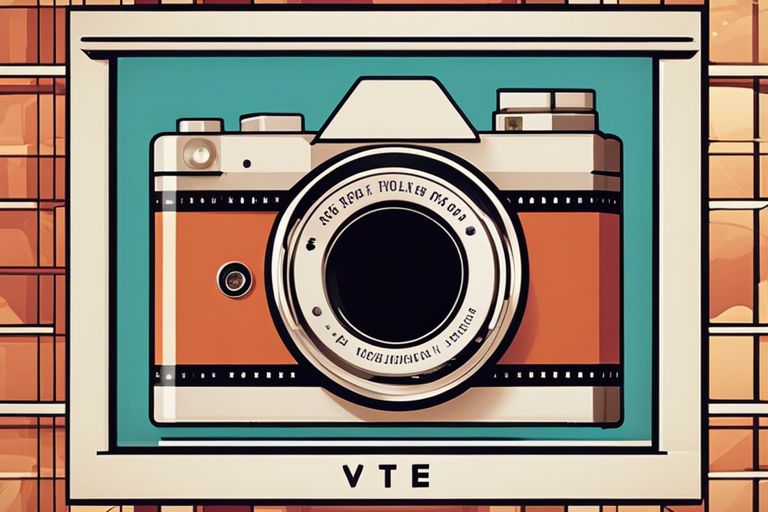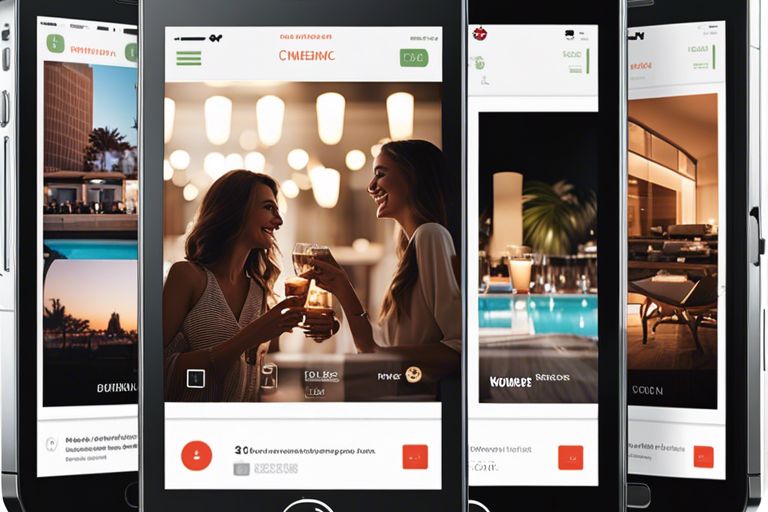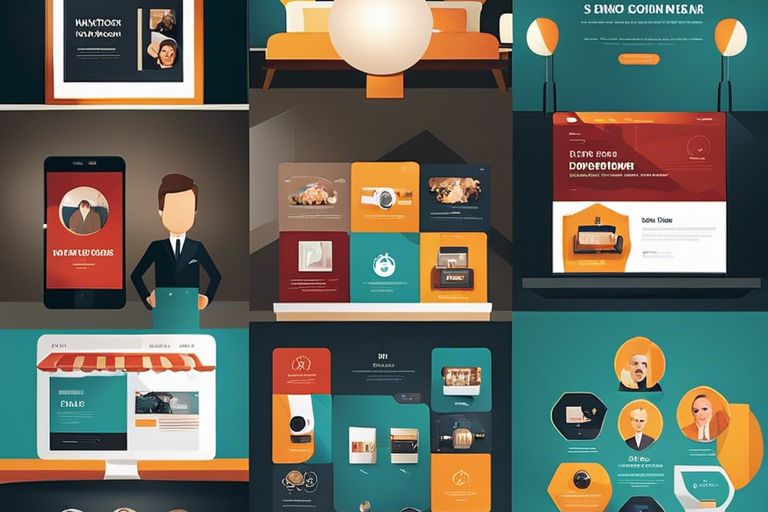Utilizing user-generated content in hotel marketing can, indeed, have a plethora of advantages for your business. When potential guests see authentic images and reviews from actual customers, it can greatly increase their trust in your hotel. Furthermore, integrating user-generated content in your marketing strategy can significantly boost your online presence and help you stand out in a crowded marketplace. Not to mention, it can also drive higher engagement on social media platforms and lead to increased bookings.
Table of Contents
- 1 Understanding User-Generated Content
- 2 The Role of UGC in Hotel Marketing
- 3 Benefits of Implementing UGC in Hotel Marketing
- 4 Strategies for Encouraging UGC
- 5 Overcoming Challenges with UGC
- 6 Measuring the Impact of UGC on Hotel Marketing
- 7 Future Trends in UGC for Hotel Marketing
- 8 To wrap up
- 9 FAQ
- 9.0.1 Q: What are the benefits of implementing user-generated content in hotel marketing?
- 9.0.2 Q: How can user-generated content enhance the credibility of a hotel’s marketing efforts?
- 9.0.3 Q: What are the ways in which user-generated content can improve brand awareness for a hotel?
- 9.0.4 Q: In what ways does user-generated content boost engagement with the audience for a hotel?
- 9.0.5 Q: How does user-generated content help in building trust and loyalty among hotel customers?
Key Takeaways:
- Authenticity: User-generated content adds credibility and authenticity to hotel marketing, as it is created by real guests and not the hotel itself.
- Social Proof: By showcasing experiences and reviews from previous guests, user-generated content serves as social proof, influencing potential guests’ booking decisions.
- Engagement: Encouraging guests to create and share content about their stay fosters a sense of community and engagement, leading to increased brand loyalty.
- Cost-effective: Utilizing user-generated content reduces the need for creating original marketing materials, saving on production costs while still showcasing the hotel’s offerings.
- SEO Benefits: User-generated content, such as reviews and social media posts, can contribute to a hotel’s search engine optimization efforts, driving organic traffic and potential bookings.
Understanding User-Generated Content
Even in the digital age, word-of-mouth recommendations remain one of the most powerful marketing tools. User-generated content (UGC) leverages this phenomenon to promote brands and products. UGC refers to any form of content, such as text, images, videos, or reviews, created by consumers or end-users rather than brands or professionals.
Definition and Types of UGC
On the surface, UGC can encompass a wide range of consumer-created content, including social media posts, blog articles, product reviews, and video testimonials. These types of UGC can be categorized into five main forms:
- Text: This includes reviews, comments, and social media posts.
- Images: User-generated photos or branded content shared by consumers.
- Videos: Consumer-created videos, such as product demonstrations or vlogs.
- Reviews: Feedback and ratings provided by customers on third-party platforms.
- Q&A: User-generated questions and answers about a product or service.
The advantages of UGC are numerous, including enhanced credibility, increased engagement, and a wider reach.
On the other hand, limitations of UGC may include the lack of control over the content, potential negative feedback, and legal concerns related to intellectual property. Importantly, user-generated content can significantly influence a potential buyer’s decision, and brands can tap into these forms of organic promotion to boost their marketing efforts.
Evolution of UGC in the Digital Era
User-generated content has been present since the early days of the internet, but its role has evolved significantly with the advent of social media and digital platforms. Prior to the digital age, UGC was mostly confined to traditional forms such as word-of-mouth recommendations, letters to the editor, or consumer reviews in magazines.
Plus, with the rise of social media and online forums, UGC has become a cornerstone of digital marketing strategies. Brands now encourage consumers to create and share content related to their products or services, leveraging the power of social proof and peer recommendations to influence potential customers. In today’s digital landscape, UGC has become a powerful tool for building brand loyalty and trust.

The Role of UGC in Hotel Marketing
Any successful hotel marketing strategy incorporates user-generated content (UGC) as a crucial element. UGC, which includes photos, videos, reviews, and social media posts created by guests, offers an authentic and influential perspective on the hotel experience. For more information on why user-generated content (UGC) is important for hospitality marketing, check out our blog post Why User Generated Content (UGC) Is Important for Hospitality Marketing.
Enhancing Brand Visibility
An effective UGC strategy can significantly boost a hotel’s brand visibility. When guests share their experiences on social media or review platforms, they expose the hotel’s brand to a wider audience. These authentic and genuine endorsements serve as powerful testimonials and can attract potential guests who are searching for trusted recommendations. Hotels can also leverage user-generated content to showcase their unique amenities and offerings, further differentiating themselves in a competitive marketplace.
Moreover, user-generated content often ranks higher in search engine results, contributing to increased exposure. By encouraging guests to share their experiences and tag the hotel, properties can amplify their online presence and reach a broader audience, ultimately driving more traffic to their website and increasing direct bookings.
Improving Customer Engagement
On top of increasing brand visibility, user-generated content plays a pivotal role in enhancing customer engagement. When hotels feature guests’ photos and testimonials on their website or social media channels, they not only acknowledge and appreciate their guests but also create a sense of community and inclusivity. This personalized approach resonates with potential guests, fostering a deeper connection and increasing the likelihood of conversion.
Additionally, when hotels actively interact with user-generated content by liking, commenting, or sharing guests’ posts, they establish meaningful relationships and build loyalty with their guests. This engagement also serves as social proof, further validating the hotel’s credibility and desirability in the eyes of the audience.
Any hotel that prioritizes customer engagement can benefit from implementing a robust UGC strategy, leveraging the authentic voices of their satisfied guests to create a compelling and relatable narrative.
Building Trust and Credibility
Trust and credibility are essential in the hospitality industry, and user-generated content plays a crucial role in cultivating these qualities. Travelers actively seek authentic and unbiased perspectives when researching accommodations, and UGC provides just that. When potential guests encounter genuine photos and reviews from fellow travelers, they are more likely to trust the information and form a positive impression of the hotel.
Building trust and credibility through UGC also mitigates the risks of skepticism or doubt that potential guests may have, especially in the age of online reviews and social influence. Hotels that embrace and showcase user-generated content demonstrate transparency and a commitment to quality, ultimately earning the trust of their audience.
Benefits of Implementing UGC in Hotel Marketing
Keep reading to discover the numerous benefits of implementing user-generated content (UGC) in hotel marketing. UGC is a powerful tool that can revolutionize the way hotels connect with their audience and drive business growth.
Cost-Effectiveness
Cost-Effectiveness: Utilizing user-generated content in hotel marketing can significantly reduce the costs associated with content creation. Instead of investing in expensive professional photoshoots or hiring content creators, hotels can leverage the authentic and impactful content that guests are already creating during their stay. This not only saves money but also adds an element of relatability and authenticity to the marketing efforts, which resonates with potential guests.
Additionally, by featuring UGC on their website and social media channels, hotels can effectively expand their content library without incurring extra expenses, ultimately maximizing their marketing budget.
Authentic Content Creation
With authentic content creation: UGC provides hotels with an opportunity to showcase real experiences and genuine moments captured by their guests. This type of content holds immense value in the eyes of potential customers, as it serves as trustworthy and genuine endorsements of the property and its services.
Marketing campaigns that incorporate UGC witness higher engagement rates and improved brand loyalty, as guests are more likely to trust the opinions and experiences of their fellow travelers over traditional advertising messages.
Authentic Content Creation: Furthermore, incorporating UGC into marketing strategies can elevate a hotel’s SEO efforts by providing fresh and relevant content that resonates with online audiences, ultimately improving search engine rankings and driving organic traffic to the hotel’s website.
Boosting Online Presence
Online: The integration of UGC in hotel marketing plays a pivotal role in boosting the hotel’s online presence across various digital platforms. By encouraging guests to share their experiences and memories through photos, videos, and reviews, hotels can establish a dominant and compelling online presence that captivates and influences potential guests.
It also: helps to create a buzz around the property, fostering a community of engaged past, present, and future guests who actively participate in conversations and share their excitement about the hotel, effectively extending its reach and visibility in the online space.
Enhancing Social Proof and Reviews
Reviews: Leveraging user-generated content in hotel marketing significantly enhances social proof and reviews, as it presents authentic and unbiased perspectives on the guest experience. Potential guests are more likely to trust the credibility of user-generated content, considering it as a reliable source of information when making their booking decisions.
To: maximize the impact of UGC, hotels can showcase guest reviews and testimonials alongside the corresponding user-generated visual content, creating a compelling narrative that reinforces the hotel’s reputation and bolsters its credibility among potential guests.
Increasing Direct Bookings
Online: The strategic integration of user-generated content in hotel marketing initiatives has the potential to drive a substantial increase in direct bookings. Authentic and captivating user-generated visuals and reviews serve as powerful persuasive tools that influence potential guests to choose the hotel for their next stay, ultimately leading to a surge in direct bookings and revenue.
Any: hotel aiming to reduce dependency on third-party booking platforms and increase direct bookings should prioritize leveraging UGC as a critical component of their marketing strategy, harnessing the compelling influence it has on the booking decisions of potential guests.
Strategies for Encouraging UGC
Unlike traditional forms of marketing, user-generated content (UGC) offers a more authentic and engaging way for hotels to connect with their audience. Implementing UGC in your hotel marketing plan can significantly boost your brand’s visibility and credibility. To fully harness the power of UGC, it’s important to develop effective strategies that encourage guests to create and share content that showcases their experiences at your hotel.
To learn more about the importance of UGC in hotel marketing, check out our Hotel Marketing Plan: Why Successful Hotels Prioritize UGC.
Developing a UGC-Friendly Platform
UGCFriendly Creating a UGC-friendly platform involves optimizing your hotel’s website and social media channels to make it easy for guests to share their experiences. This includes incorporating user-friendly submission forms, encouraging guests to tag your hotel in their posts, and providing clear guidelines on the type of content you’re looking for. By creating a seamless experience for users to share their stories, you can increase the likelihood of receiving high-quality UGC that reflects positively on your brand.
Creating Hashtag Campaigns
Developing Utilizing relevant hashtags can effectively boost the visibility of UGC and encourage guests to participate in sharing their experiences. Create unique and catchy hashtags that reflect your hotel’s brand and encourage guests to use them when posting about their stay. This not only helps you curate UGC on social media but also allows you to track and measure the success of your campaign.
Any successful hashtag campaign requires clear and engaging prompts that inspire guests to create and share content. Consider incorporating seasonal or thematic campaigns to drive higher engagement and participation.
Leveraging Contests and Rewards
Contests Hosting UGC contests with exciting rewards can motivate guests to share their experiences and create compelling content. Whether it’s a photo contest, storytelling competition, or user-generated video challenge, offering incentives such as complimentary stays, exclusive experiences, or discounts can entice guests to participate and showcase their creativity.
Platform Leveraging a UGC-friendly platform to manage and promote contests is crucial for seamless participation and content aggregation. By utilizing a platform that supports contest management and content curation, hotels can effectively engage their audience and maximize the impact of UGC campaigns.
Showcasing UGC across Marketing Channels
Encouraging Incorporating UGC into your hotel’s marketing channels, including your website, social media, and email campaigns, can enhance your overall marketing strategy. By showcasing authentic guest stories and experiences, you can build trust with potential guests and differentiate your hotel from competitors. Utilize UGC to create visually appealing and compelling content that resonates with your target audience.
across By strategically leveraging UGC across multiple marketing channels, hotels can amplify their brand messaging and create a sense of community and belonging among past, present, and future guests.
Overcoming Challenges with UGC
Despite the many benefits of user-generated content (UGC) in hotel marketing, there are inevitable challenges that hoteliers need to address in order to harness its full potential. Two major challenges in particular are managing negative content and ensuring content authenticity.
Managing Negative Content
With the open nature of UGC, hotels may encounter negative content or reviews from guests. It’s crucial for hoteliers to have a strategy in place for handling and addressing negative content in a timely and professional manner. This includes actively monitoring online platforms, responding to negative reviews with empathy and offering solutions to address any issues raised. By handling negative content effectively, hotels can demonstrate a commitment to customer satisfaction and showcase their dedication to continuous improvement, ultimately turning a potential negative into a positive.
Ensuring Content Authenticity
Content authenticity is essential in UGC, as consumers value genuine and unbiased opinions. Hotels need to have processes in place to verify the authenticity of user-generated content to maintain credibility and trust. By implementing measures such as verifying guest stays, moderating content to filter out fake or misleading reviews, and encouraging the use of real photos by guests, hotels can ensure that their UGC reflects the genuine experiences of their guests. Ensuring content authenticity not only enhances trust but also contributes to the overall positive reputation of the hotel.
Ensuring content authenticity is crucial for maintaining credibility and trust in user-generated content. By implementing measures such as verifying guest stays, moderating content, and encouraging the use of real photos, hotels can ensure that their UGC reflects the genuine experiences of their guests.
Navigating Legal Considerations
For hotels utilizing UGC in their marketing, navigating legal considerations is essential. From copyright issues to privacy concerns, there are legal pitfalls that hoteliers need to be aware of. It’s important to have a clear understanding of the legal implications surrounding UGC, including obtaining proper permissions for guest photos, understanding intellectual property rights, and adhering to data privacy regulations. By proactively addressing legal considerations, hotels can mitigate potential risks and ensure compliance with relevant laws and regulations.
Authenticity of UGC is crucial, and hotels need to be aware of legal considerations such as copyright issues and privacy concerns when utilizing UGC in their marketing. Proactively addressing legal considerations can mitigate potential risks and ensure compliance with relevant laws and regulations.

Measuring the Impact of UGC on Hotel Marketing
After implementing user-generated content (UGC) in hotel marketing strategies, it is crucial to measure its impact in order to understand its effectiveness and optimize future efforts. By utilizing key performance indicators (KPIs), analytics, and case studies, hotel marketers can gain valuable insights into the success of their UGC campaigns.
Key Performance Indicators (KPIs) for UGC
To evaluate the impact of UGC on hotel marketing, it is important to track relevant KPIs such as engagement metrics, conversion rates, and revenue generated from UGC. These indicators provide valuable data on how UGC is influencing consumer behavior and impacting the bottom line. Additionally, monitoring the growth of user-generated content, such as reviews, photos, and videos, can offer insights into the level of guest satisfaction and brand advocacy.
Analytics and Tools for Assessing UGC Success
Tools such as Google Analytics, social media monitoring platforms, and reputation management software can provide comprehensive insights into the performance of UGC in hotel marketing. These tools enable hotel marketers to track and measure the reach, sentiment, and engagement of user-generated content across various online channels. The data obtained from these analytics can be used to identify trends, understand customer preferences, and make data-driven decisions to optimize UGC strategies.
The ability to analyze the impact of UGC on website traffic, social media interactions, and conversion rates is essential for achieving success in hotel marketing. By leveraging these tools, hotel marketers can gain a deeper understanding of how UGC is contributing to brand awareness, customer loyalty, and revenue generation.
Case Studies of Successful UGC Implementation
Impactful case studies of successful UGC implementation serve as inspiring examples of the benefits that UGC can bring to hotel marketing. For instance, a hotel chain saw a 300% increase in online bookings after integrating UGC into their website. Another resort experienced a 40% rise in direct bookings following a UGC-focused social media campaign. These case studies demonstrate the powerful impact that UGC can have on driving consumer engagement and ultimately, business growth.
For hotel marketers, studying such successful cases can provide valuable insights into how to effectively leverage UGC to enhance brand visibility, influence purchase decisions, and build strong customer relationships.
Future Trends in UGC for Hotel Marketing
Your hotel’s marketing strategy can greatly benefit from the implementation of user-generated content (UGC). As the hospitality industry continues to evolve, it is essential to stay ahead of the curve and leverage the power of UGC to enhance your brand’s presence and customer engagement. To understand the importance of UGC in the hospitality sector, check out this insightful article on Why User Generated Content Can Benefit the Hospitality Industry.
Integration of UGC with Emerging Technologies
Any hotel looking to stay competitive in the future must embrace the integration of UGC with emerging technologies. With the rise of virtual reality, artificial intelligence, and augmented reality, there are tremendous opportunities to enhance the guest experience through immersive UGC. By incorporating UGC seamlessly into these technologies, hotels can create personalized and captivating experiences that resonate with modern travelers.
Furthermore, the use of UGC in conjunction with technologies like chatbots and voice assistants can streamline the booking process and provide guests with instant access to authentic recommendations and testimonials, building trust and confidence in their choices.
Evolving Guest Expectations and Behaviors
An important aspect of future UGC trends for hotel marketing is the evolving expectations and behaviors of guests. Today’s travelers seek authenticity, social proof, and personalized experiences more than ever before. By incorporating authentic UGC into their marketing efforts, hotels can resonate with these changing expectations and connect with potential guests on a deeper level.
Behaviors such as seeking peer-generated content for travel inspiration and relying on social media for decision-making highlight the significance of UGC in influencing the modern traveler’s choices.
Strategic Partnerships and Collaborations
Any hotel aiming to thrive in the future must seek strategic partnerships and collaborations to amplify the impact of UGC in their marketing initiatives. By partnering with influencers, local businesses, and travel content creators, hotels can expand their reach and appeal to diverse audiences through authentic UGC that reflects the diverse experiences and perspectives of their partners.
Partnerships and collaborations offer a win-win situation by leveraging the credibility and influence of partners while providing them with valuable exposure and opportunities to engage with their audience in a meaningful way.
To wrap up
Following this exploration of the benefits of implementing user-generated content in hotel marketing, it is clear that leveraging the authentic experiences and recommendations of satisfied guests can greatly enhance a hotel’s online presence and customer trust. From increasing engagement and dwell time on the hotel’s website to improving SEO and driving direct bookings, user-generated content can have a significant impact on the success of a hotel marketing strategy. Additionally, user-generated content allows for a more personalized and genuine representation of the hotel experience, making it a valuable tool for building brand loyalty and attracting new customers.
By incorporating user-generated content into their marketing efforts, hotels can not only improve their online visibility and credibility, but also create a more compelling and persuasive narrative for potential guests. With the potential to drive both short-term bookings and long-term customer loyalty, harnessing the power of user-generated content is a strategy that hotel marketers cannot afford to overlook in today’s competitive landscape.
FAQ
Q: What are the benefits of implementing user-generated content in hotel marketing?
A: User-generated content in hotel marketing can provide real, authentic experiences to potential guests, build credibility, increase brand awareness, and improve engagement with the audience. It also helps in building trust and loyalty among customers.
Q: How can user-generated content enhance the credibility of a hotel’s marketing efforts?
A: User-generated content acts as social proof, showcasing real experiences and opinions of past guests. This authenticity helps in building credibility for the hotel as it is coming directly from the guests, not the hotel itself.
Q: What are the ways in which user-generated content can improve brand awareness for a hotel?
A: User-generated content often includes sharing experiences on social media, which can significantly increase a hotel’s exposure. It can reach a wider audience and potentially attract new customers who trust the opinions of their peers.
Q: In what ways does user-generated content boost engagement with the audience for a hotel?
A: User-generated content sparks conversations and interactions with the audience. When guests see their content being shared by the hotel, it encourages further engagement and interaction with the brand, creating a sense of community and belonging.
Q: How does user-generated content help in building trust and loyalty among hotel customers?
A: By showcasing real experiences and testimonials, user-generated content fosters trust in potential guests. When customers see that others have had positive experiences, they are more likely to trust and choose the hotel. This, in turn, enhances customer loyalty and encourages repeat visits.










